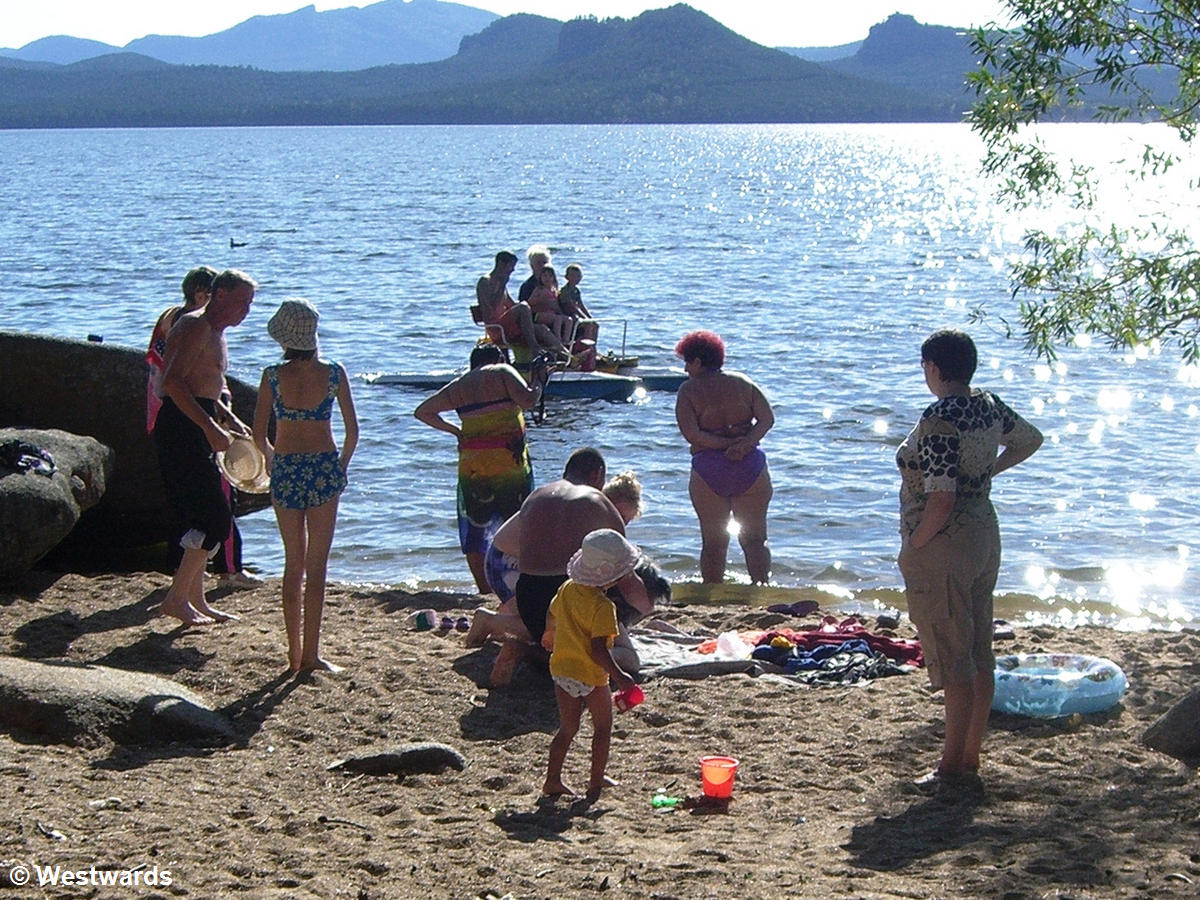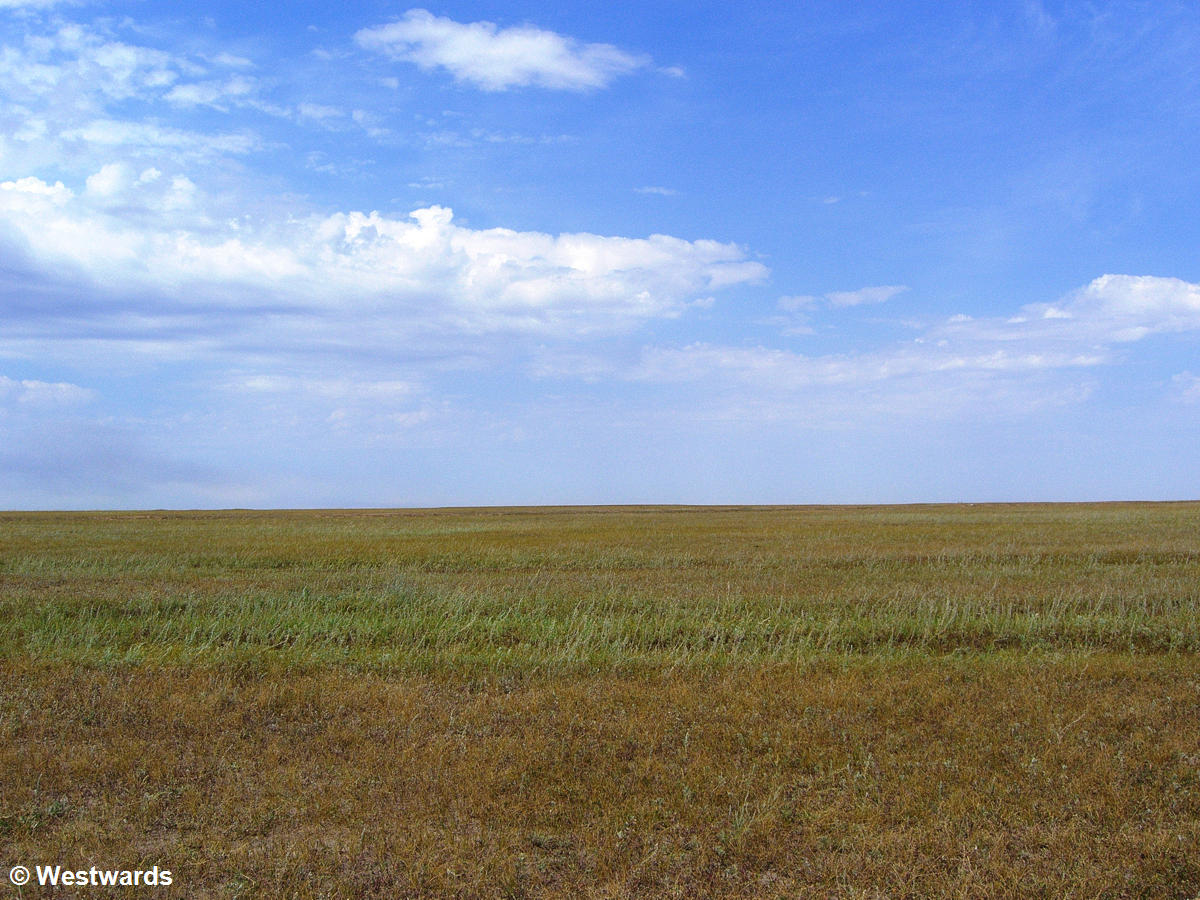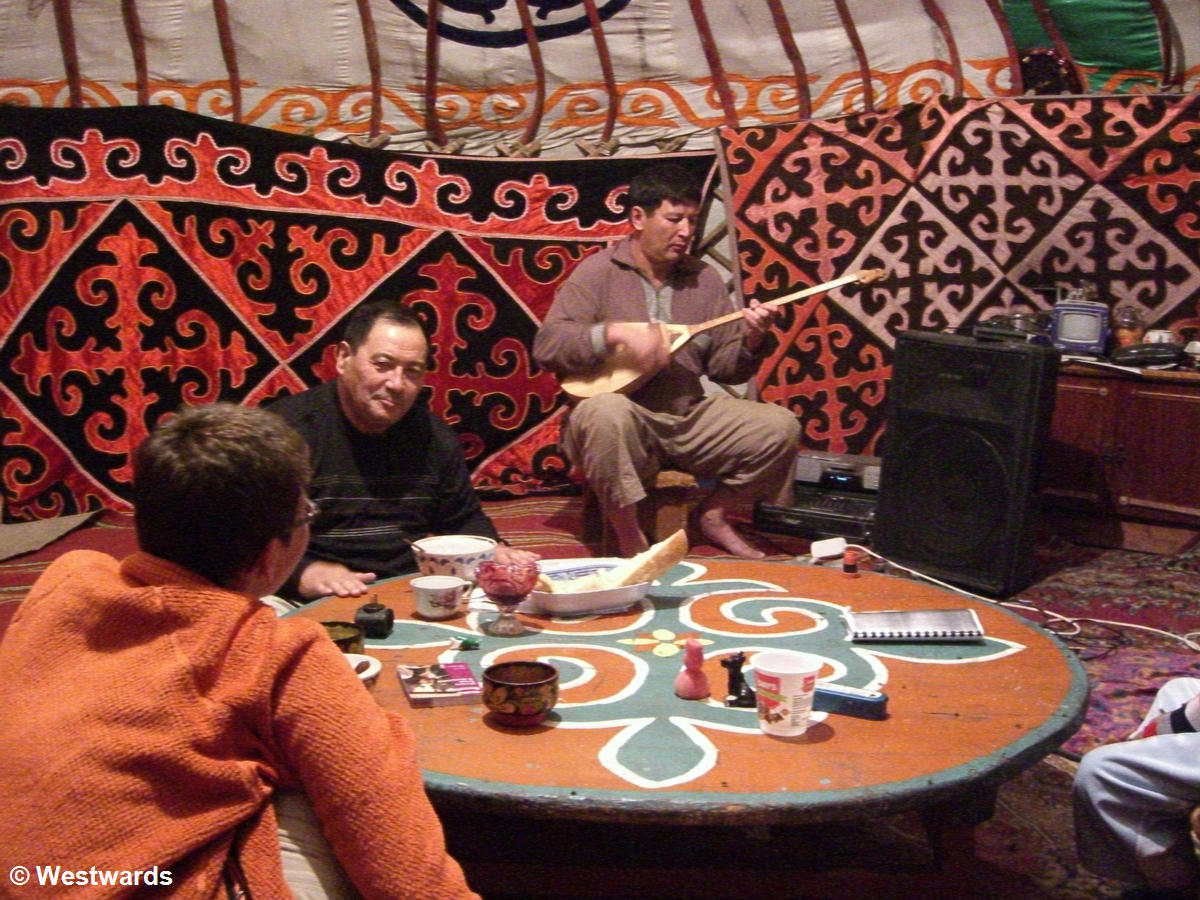
Nightbus N 22 to “Schlebusch ueber Klinikum” stops just in front of the station. Supermarket shelves are full of German brands like Kuehne, Ehrmann and Bahlsen. And the little cafe around the corner serves huge, delicious pieces of German-style cheese cake with berries. This post is about our German Kazakhstan experiences.
We are not in Nordrhein-Westfalen/Germany, but in Almaty/Kazakhstan. At least geographically Europe is still at least 1500 km to the West (the Volga at Astrakhan). The bus is a second-hand import from Germany. Apparently nobody bothered to take out the German destination signboard. The cheese cake as well as the Kuehne Pickles cost twice as much as any Kazakh or Russian brand.


Kazakhstan, one of the former Soviet republics, became independent in 1991. Since then, in a system our guidebook kindly describes as “‘presidential democracy’”, President Nursultan Nazarbajev has led the world’s 9th largest country into an ever brighter future. Thanks to newly developed oil fields at the Caspian Sea, the economy is expanding. Indeed, hotel and restaurant prices in cities like Almaty, Astana and Atyrau (an oil boom city) reach European levels. Only that they often don’t offer European standards.
German settlers in Kazakhstan
What today is Kazakhstan became Russian territory during the so-called „Great Game.“ In this 19th century version of the Cold War, Britain and Russia struggled for military control over Central Asia. All the great players saw the region as a convenient buffer between Russia and British India. The scattered Kazakh nomads were quickly integrated into the Tsarist Empire. Thus, they later became part of the Soviet Union. Under Stalin hundred thousands of German-Russians were forced to resettle in Kazakhstan. The same fate befell other minorities such as Koreans – making the country a melting pot of different ethnicities (and cuisines). In this way, Kazakh society has stayed multicultural since earliest times: We have seen remains of prehistoric petroglyphs by nomadic people in Tamgaly. And during the time of the Silk Roads, numerous towns and trading posts such as Akyrtas dotted the area.

In the 20th century, the wide Kazakh steppe offered not only empty areas for the Soviet Union’s space rocket launches and nuclear tests, but also for some of the largest Gulags. These were concentrated around Karaganda, south of today’s capital Astana.
After the exodus of Kazak-Germans

Today most of the former Germans in Kazakhstan have emigrated to Germany. But almost everyone we talk to knows at least a few words of German. Or at least she has a relative or a friend of German origin. And of course these are the ties that bring German pickles into Kazakh supermarkets.
Due to the Kazakh government’s promotion of return programmes for Kazakhs abroad (mostly from China and the other “Stan” countries), Kazakhs are now again the largest ethnic group in Kazakhstan, followed by Russians. Kazakh traditions are held up, and we have had ample chance to try the national drink Kumys (fermented mare’s milk). But we are also looking forward to another visit to the cake shop in Almaty…
NB: We had nor sponsoring for our travel to Kazakhstan. We paid all expenses ourselves.
Never miss a new post! Get notifications about new posts straight into your inbox!



